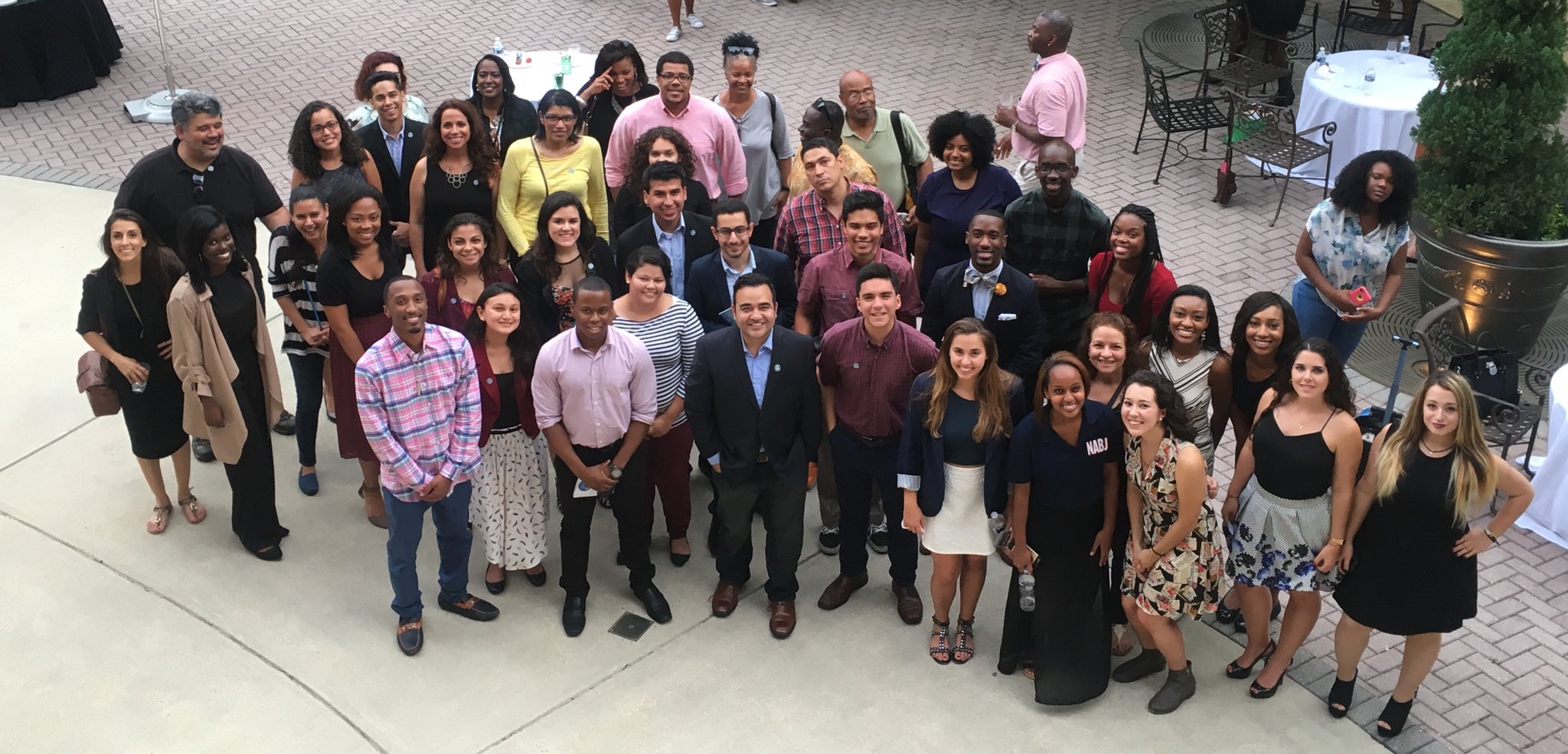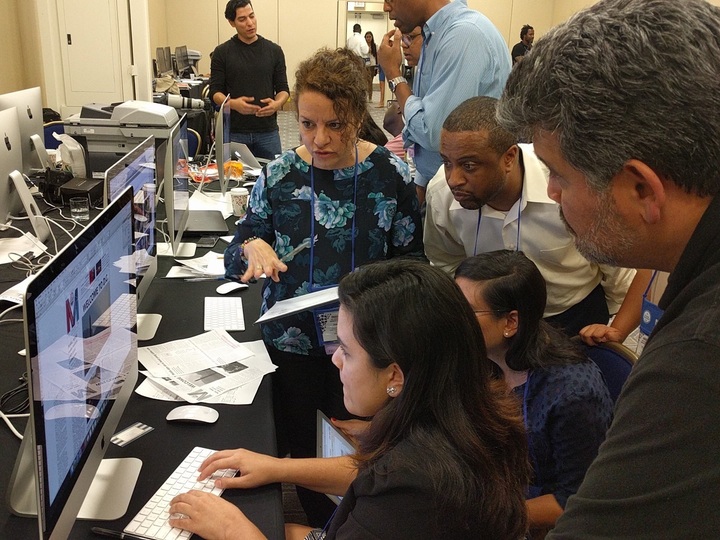
5 things I learned at the NABJ/NAHJ Joint Convention
I recently participated in the Student Projects for the National Association of Black Journalists/National Association of Hispanic Journalists Joint Convention and Career Fair in Washington, D.C. In a conference call the Wednesday before I flew to D.C., for the first time, the Student Projects mentors sternly told my fellow participants and me that our lives were about to change.
At the time, I was sitting in a lobby on the second floor of the Langford Hotel in Miami, having stepped out of a happy hour for a departing colleague. My life wasn’t going to change anytime soon, I thought.
But the next week, when I finally started working in the newsroom created for students to cover the convention, I learned several things I’m taking with me into my last semester at the University of Houston.
1.Talk to your mentors.
Walking into the newsroom the first day, I took a look at the room around me and couldn’t tell the students from the mentors. There were mentors of all ages and backgrounds just like the students. I’ve always been a bit on the introverted side, but the journalist in me took over as I asked mentors about their journeys in journalism. Taking the time to get to know some of the mentors and ask them about their interests and why they were interested in helping up-and-coming journalists really opened my eyes to how close-knit this industry really is.
2.Become a jack of all trades.
In an age when page views and analytics often trump journalistic quality, the NABJ/NAHJ Student Projects focused on pure, fact-based news. We covered everything from Attorney General Loretta Lynch speaking on a panel about race to Democratic presidential nominee Hillary Clinton speaking to a room packed with the most diverse journalists I’d seen. My fellow student journalists and I were able to tap into different mediums we hadn’t worked with before. One participant I met the first day only had experience in print journalism before she asked the broadcast mentor if she could participate on that side. Before the end of the week, she was anchoring the student-run broadcast production.

Glissette Santana, center, and members and instructors of the student newsroom. Photo by Delano Massey.
3.“Get comfortable being uncomfortable”
My mentor, Delano Massey, said this to us multiple times throughout the week. Not all of us were comfortable approaching hardened professionals and asking them their opinion on a subject. Not all of us were comfortable taking a quality photo. But all of us were willing to work hard to get comfortable doing jobs well outside our comfort zones. We were all chosen to be on the project for one reason or another; this was our time to prove it to our mentors … and potential employers.
4.Take advantage of the connections.
I attended a couple of networking events while in D.C. and the act of starting a conversation with someone new could be the first step to getting a job. I tried to do it as often as possible. The connections that you make with your mentors could also be the first step in a new direction. Those contacts can take you places in the industry, whether you know it or not. They are vital in reaching the position where you want to be. Take advantage of it!
5.Understand that there are people out there just like you.
I worked at my college newspaper for two and a half years, so I know that there are people out there just as passionate about journalism as I am. I, however, had never had the chance to interact with other journalism majors from different colleges and universities. Seeing all of these incredibly talented people and being able to learn a bit about their journeys made the week of hard work worth it. It gave me hope that journalism isn’t going anywhere. If anything, it’s only getting better from here.
Glissette Santana is a former editorial intern at Knight Foundation. Follow her on Twitter @glissettetweets.
Recent Content
-
Journalismarticle ·
-
Journalismarticle ·
-
Journalismarticle ·


